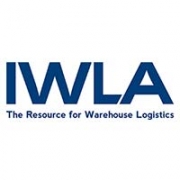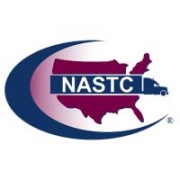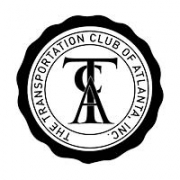Turn Applicants into Interns
Even though unemployment is at all time high finding qualified employees remains a challenge for the logistic industry. The question is how to take untrained applicants and prepare them for success in a new industry. Many companies engage in internship programs and are finding great success. According to Lee Smith from Outsource Logistics “the advantage of an intern is that you have someone full of energy, a willingness to learn and you can mold them into the type of employee that your company needs. If an intern comes in with a strong work ethic and great attitude it generally leads to a job offer. The intern needs to task themselves with adding value to a company in every way possible”. Internships provide more than just future employees, they can also enhance your companies public profile and educate the community about opportunities in logistics.
Creating an internship
Creating an internship program is fairly simple. The first step to creating an internship is evaluating your company’s areas of need and available staff to foster the potential intern. Determine how many interns your company can take at one time and how long a valuable program will take. Keep in mind that the intern should be given an education about the company and what happens there as well as learning a position. Make sure you have all the resources and tools ready to help them make the most of the program.
Legal compliance
States may vary on the legal aspect of internship programs and whether they may be considered employees or not. According to theThe Fair Labor Standards Act for an intern to be not financially compensated certain things must be true: A job is not guaranteed when the internship is over, the intern must not be replacing an employee, the intern needs to benefit the most via academic requirements, and the intern clearly understands the terms. In the case the intern does not meet those requirements they will be considered an employee and a pay rate must be determined. Since there are legal problems if an unpaid intern performs work assignments it is generally better to create paid internships. The pay scale should be relative to the purpose of the program. If the internship is merely to educate then a minimum wage may be appropriate. However if the goal is to groom a potential long term employee then it might be advantageous to pay a more competitive rate to attract a stronger candidate.
Setting them up for success
After consulting with your legal team it’s time to set up the core of the program. If the internship is for a college or high school student then educational goals should be in the forefront. All interns should have an orientation and then a tour of the facility. Then they should be given a written guide with policies and expectations. The intern should have a direct supervisor or mentor even if they will be working in different departments and should be given periodic evaluations. If possible they should be given an outline about their daily duties and any projects they will be working on.
Where to find interns
When it comes to finding an intern there are several ways to locate one. There are still traditional routes such as contacting your local colleges (technical or academic) and working with the logistics programs to find motivated interns or hosting a booth at a career. There are also new methods for finding interns. Utilizing web sites like Internships.com or www.collegerecruiter.com is a great place to find interns, most of today’s students are seeking internships though sites like these. Another option is to look for local programs with internships, such as Savannah’s Maritime Education Taskforce (MLET). This mission of MLEt is to educate high school seniors about the logistics and maritime industry. Every year they partner with twenty businesses to place an intern and then they monitor the progress throughout the process.
Beyond Interns
Coastal Work Source is an organization partnered with the American Job Center network whose main focus is helping businesses find qualified workers. AJCs bridges the gap by providing free help to job seekers in a variety of ways. There are over 2,000 locations in the United States and the Coastal Work Source is Georgia’s version. They specialize in pairing the right employee to a company that fits their skill set and are funded by a myriad of state and federal programs. The range of services they offer job seekers and businesses is quite impressive. Coastal Worksource offers business service representatives that specialize in logistics and work with companies with everything from creating job descriptions to on the job training. The training plan and time frame up to six months is developed in tandem with the representative. Companies are reimbursed 50% of the wages paid to the trainee during the program.
Last week I suggested that existing employees could be trained and promoted into more technical position’s free entry level positions for displaced workers. Another one of Coastal Workforce’s programs can help with this transition as well. They have a program called incumbent worker training that assists with training employees that have been in the workplace for at least 6 months. 100% of the direct training cost may be provided by Coastal Workforce depending on the size of the company.
A great way to backfill some of the more entry level positions is to take advantage of the Work Experience program. The employees have already been trained in a classroom and the program covers the cost of drug screens and background checks. The employer will actually be refunded 100% of the employee’s wages for up to 12 weeks. The employer is not obligated to keep the employee for the duration if they do not work out and on the opposite side of the coin they can extend the time or hire the employee.
The logistic industry can certainly benefit from the boom in applicants if it maneuvers correctly. There are great resources out there to help! If you are in the Savannah, Georgia area contact Coastal Workforce at 912-659-4271 or email them at [email protected] and email can be reached via facebook at https://www.facebook.com/maritimelogisticseducationtaskforce/.









